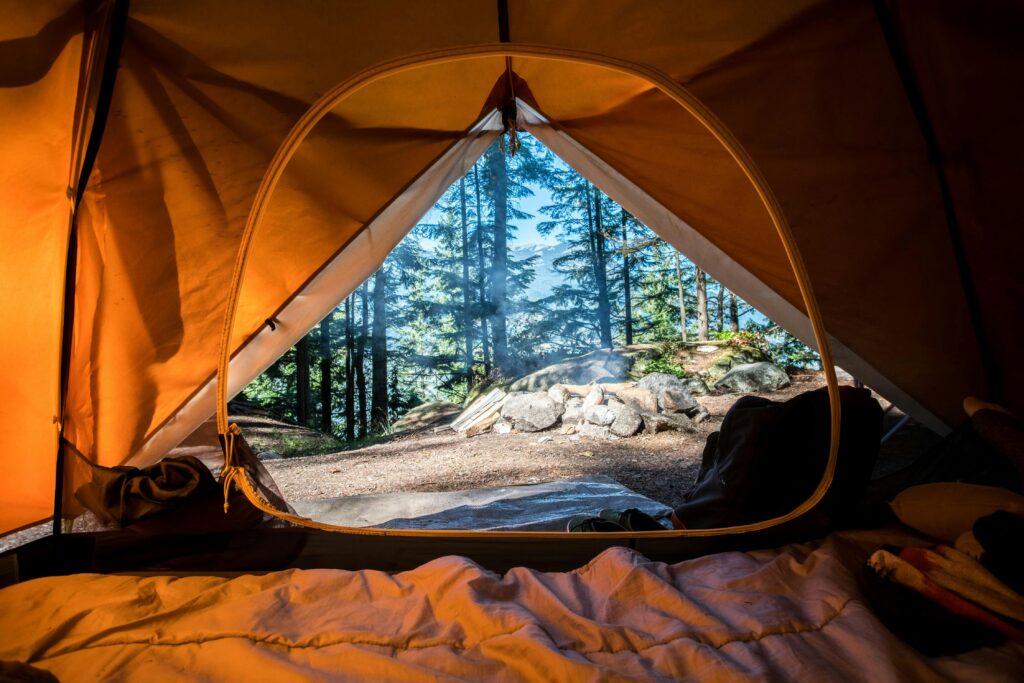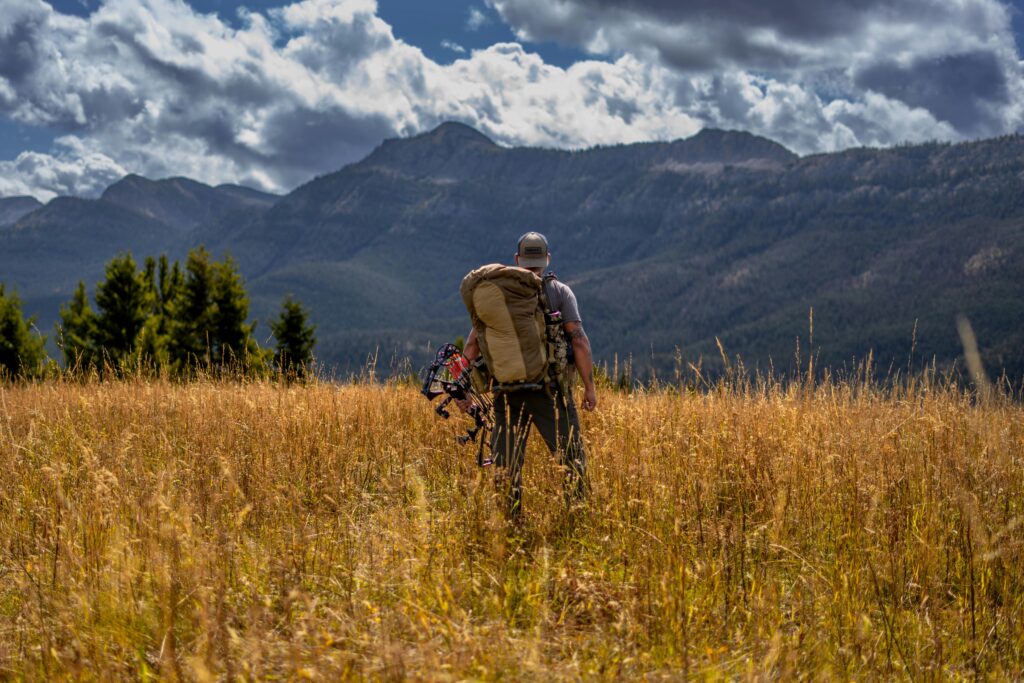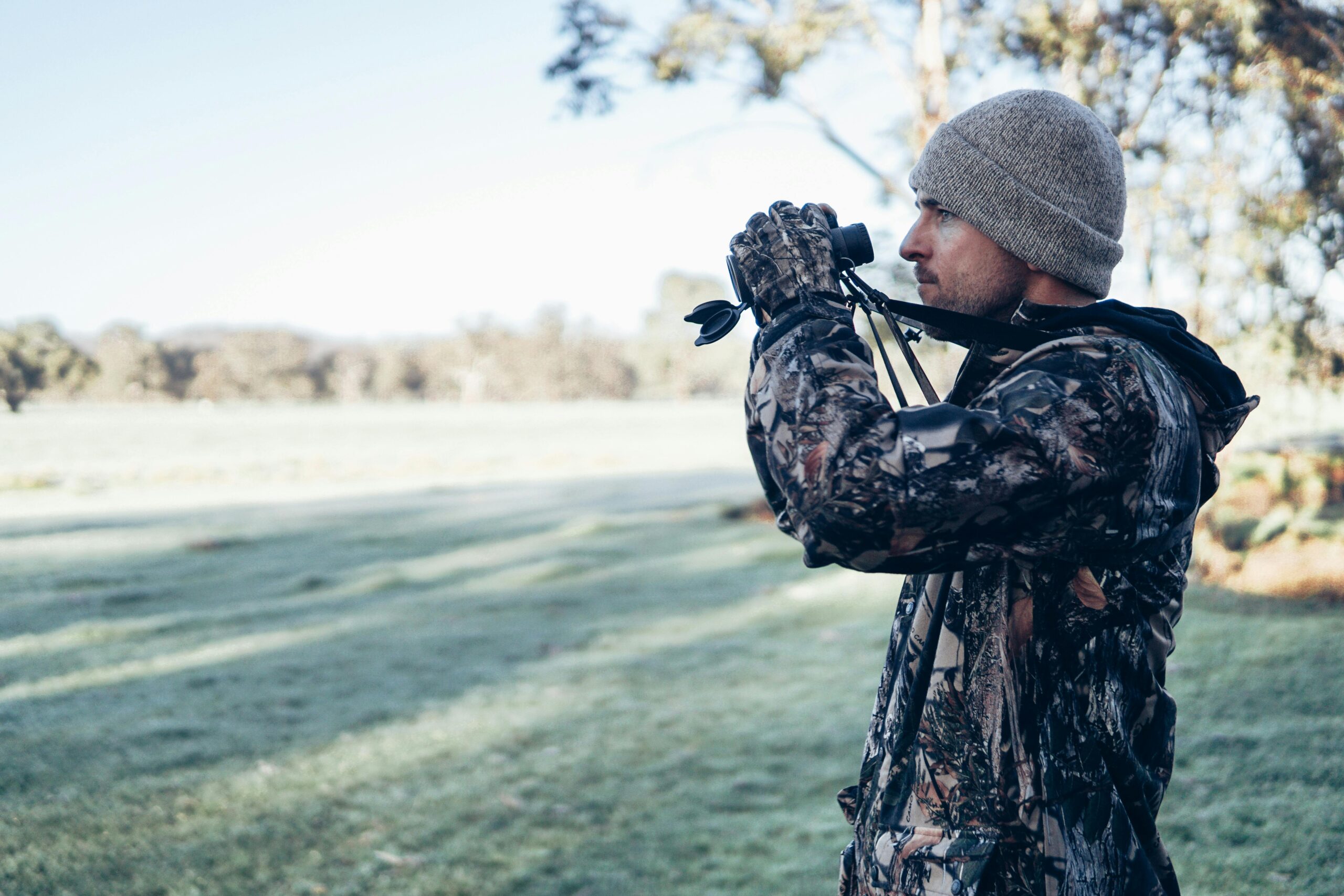by MARSHALL BONE
Solo hunting can be incredibly rewarding. Escaping from civilization, developing survival skills, and exploring the wilderness while stalking prey are all hallmarks of a grand adventure. However, with any excursion into the great unknown comes inherent peril, so proper planning is absolutely crucial.
There are many factors to consider as you prep for the big hunt, including where you’re going, how long you’ll be out, your skill level, and your personal preferences and goals. That said, there are some universal steps that every solo hunter should take before venturing into the wilderness. Here are some must-know tips to help you stay safe and enjoy the experience.
1. Pack Smart
What you bring can make or break the hunt. You don’t want to trek 10 miles into the backwoods only to realize you forgot critical gear. Check your pack, and then check it again. You can never be too vigilant.
Packing for a solo hunt is an art. The goal is to keep weight down while still having access to essentials. Think about high-value items that are easy to carry—a fishing line, a firestarter, toilet paper, a knife, and so on.
You’ll also need to be able to fix your weapon if you run into a problem, or at the very least, switch over to a secondary weapon.
For example, let’s say you’re hunting with an Elite bow. Carrying a backup bow isn’t practical, but you could bring an extra set of Elite bow strings so you can repair your bow if a string breaks. Similarly, a backup rifle would weigh you down, but you could tuck a small sidearm into a bag pocket.
Packing for a solo hunt requires discernment. When you’re on your own, you don’t have the luxury of bringing a large assortment of the usual outdoor adventure essentials and redundancies. You’re going to have to whittle down your supply list to the bare necessities. Before leaving, make sure you’re able to carry your pack comfortably for long distances.
2. Get to Know the Area
Traveling through unfamiliar territories is a thrill, but it also increases danger significantly. If you live nearby, consider taking a hike to learn the lay of the land before the big hunt. If you don’t have access to the hunting grounds now, you can research the location online and check maps.
If possible, consider talking to local hunters. Sometimes the best information isn’t readily available. Someone who knows the territory may be able to provide in-depth guidance on what to expect, areas to avoid, and if you’re lucky, secret spots to check out.
3. Tell Someone Where You’re Going
You can mitigate risk, but it’s impossible to prevent it entirely. In an emergency situation, it’s crucial that someone can find you as quickly as possible. Tell a friend or family member exactly where you’ll be, and instruct them to contact the authorities if you haven’t contacted them by a certain time and date.
Not only will this simple step improve your safety, but you’ll have peace of mind throughout the adventure, knowing that help will be coming if an unforeseen incident should occur.
4. Bring a Phone
For some solo hunters, the idea of bringing a phone flies in the face of the whole point—escaping modern civilization, connecting with nature, and taking a technology hiatus. However, even staunch purists are very glad to have emergency supplies when things take a turn for the worst, and a phone can quite literally save your life with the push of a button.
You don’t have to touch your phone while you’re out. Keep it charged, turned off, and packed away. It’ll be the emergency red button you’ll be relieved to have when it’s time to break the glass. Depending on where you are hunting, a standard phone may not have coverage. If you’re going deep into the wilderness, consider bringing a satellite phone.
5. Prepare Mentally
 Solitary hunting can take a major toll on your mental and emotional health—it’s so much more than a physical feat. Even the most experienced solo hunters have moments of fear, self-doubt, and loneliness. It comes with the territory.
Solitary hunting can take a major toll on your mental and emotional health—it’s so much more than a physical feat. Even the most experienced solo hunters have moments of fear, self-doubt, and loneliness. It comes with the territory.
It’s impossible to fully prepare yourself for the feeling of sleeping alone on a pitch-black night in the middle of nowhere while wildlife calls echo around you. However, you can do a dress rehearsal by camping alone in an area closer to civilization. Even setting up a tent in your backyard can help you to introduce your mind to an unfamiliar experience.
Before the main event, immerse yourself in nature. Hiking local trails can help to familiarize your mind with what it’s like being on your own away from modern civilization. When it’s time for the real deal, you’ll already have the muscle memory in place.
6. Learn About Field Dressing
If you plan to hunt for food, you must be able to dress it properly in the field. Besides helping to prevent spoilage, properly dressing your prey will make it much easier to carry. Beyond dressing, make sure you know how to efficiently butcher and store the meat so you can maximize your rations.
7. Be Aware of Your Surroundings
Even if you trust your internal compass, bring a compass. It’s easy to get turned around in the wild. It can happen to anyone. As you travel, take note of recognizable landmarks. Mark your trail. Look backward often so you’ll know what the land looks like when it’s time to turn around. Move with intention. You should always be able to retrace your steps at the drop of a dime.
8. Don’t Push Your Physical Limits
Solo hunting isn’t the time to push the envelope. Even a mild injury can quickly turn into a major one. Know your physical barriers, and stay within them. If you’re not a confident rock climber, don’t climb rocks. If you’ve never climbed a tree, this isn’t the place to start. Stick with your tried-and-true skills, and even then, proceed with extreme caution.
9. Be Ready to Turn Around
 Don’t let hubris endanger your life. Being able to recognize when you’ve overstepped your comfort zone is a valuable skill. There’s no shame in deciding to head home or move to a safer location. If something seems off, trust your instincts. Live to hunt another day.
Don’t let hubris endanger your life. Being able to recognize when you’ve overstepped your comfort zone is a valuable skill. There’s no shame in deciding to head home or move to a safer location. If something seems off, trust your instincts. Live to hunt another day.
10. Take Note of What You Learned
Every solo hunt is an opportunity to learn. Many hunters bring small notebooks so they can write down new knowledge in real-time. Whether you notate your findings or not is up to you, but when you get home, take some time to collect and sit with your thoughts and really absorb everything that happened. Seemingly insignificant details may end up being more relevant than you realized.
Stay Safe and Enjoy the Adventure
No amount of hunting tips and research can prepare you for what lies ahead. Think carefully about every action you take—both before and during the hunt. With each passing hunt, you’ll become more comfortable and confident, but there’s a reason why seasoned hunters have the deepest respect for nature. Savor the experience, and always prioritize your safety.
 Marshall Bone is a writer, copy strategist and all-around stylish guy who has been following trends in GQ for more than two decades. Voted best-dressed both his junior and senior year, Bone has continued this legacy and can be found covering various topics from men’s fashion to self care and grooming. He enjoys reading and is based in the greater Los Angeles area.
Marshall Bone is a writer, copy strategist and all-around stylish guy who has been following trends in GQ for more than two decades. Voted best-dressed both his junior and senior year, Bone has continued this legacy and can be found covering various topics from men’s fashion to self care and grooming. He enjoys reading and is based in the greater Los Angeles area.





